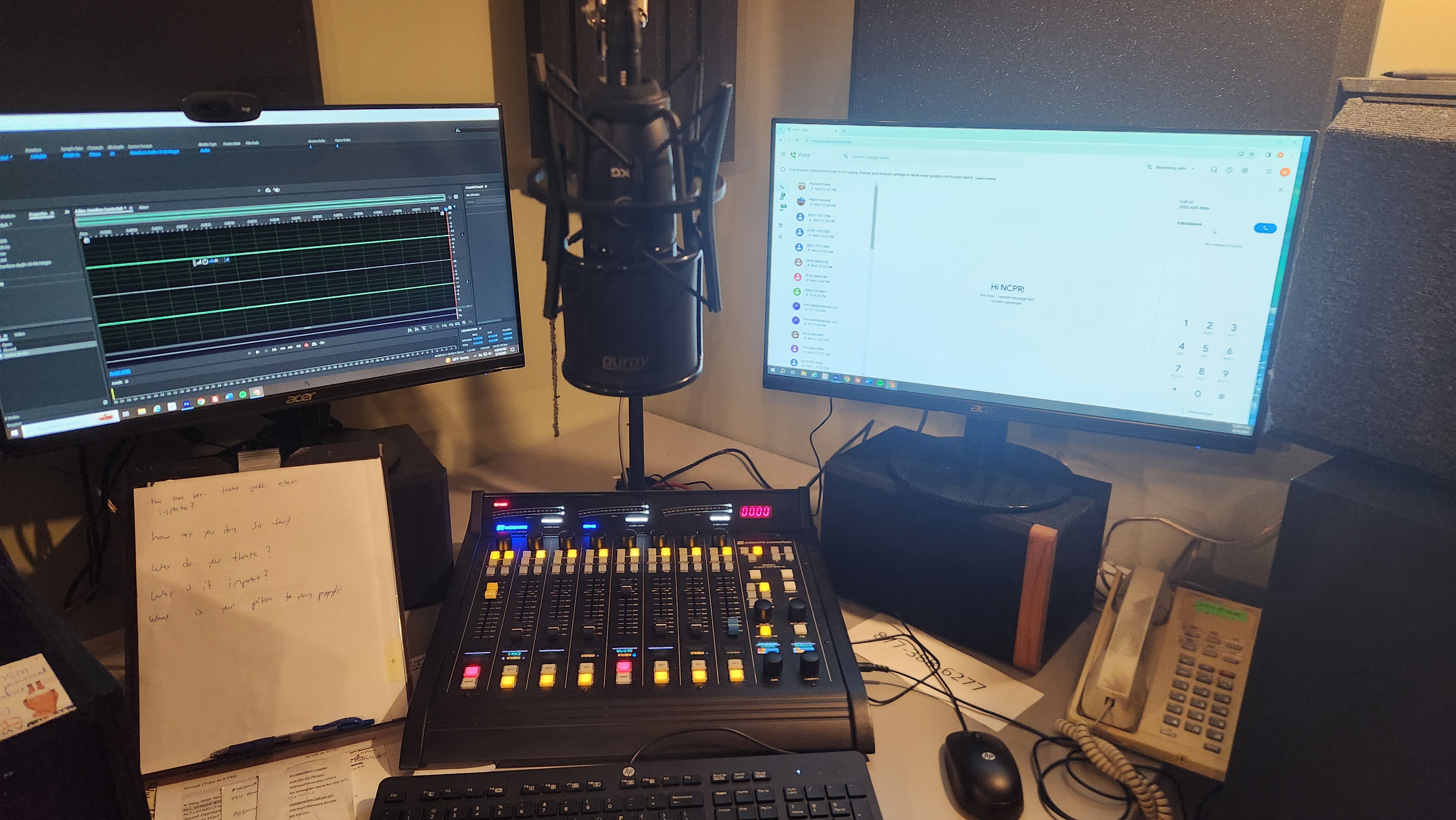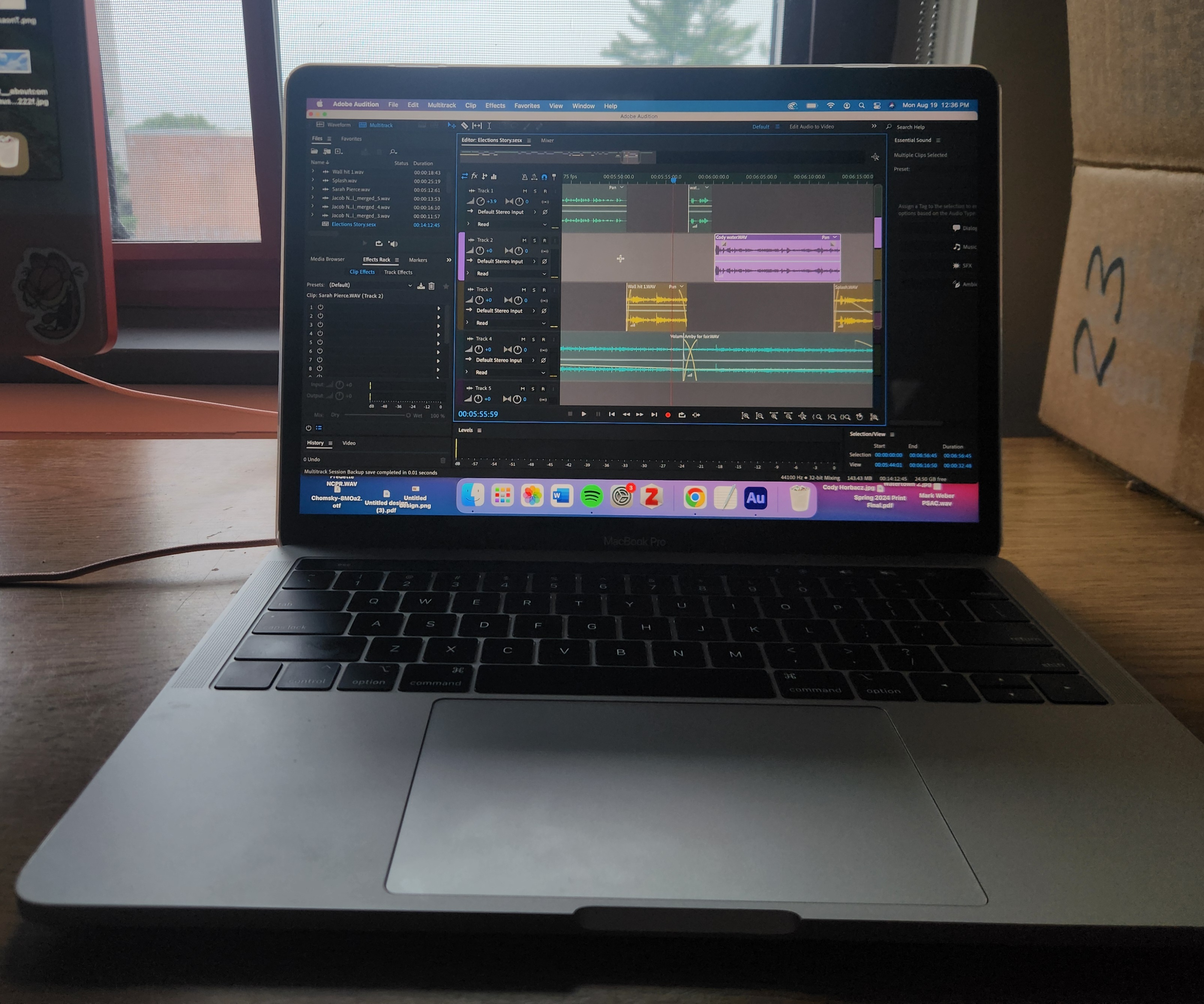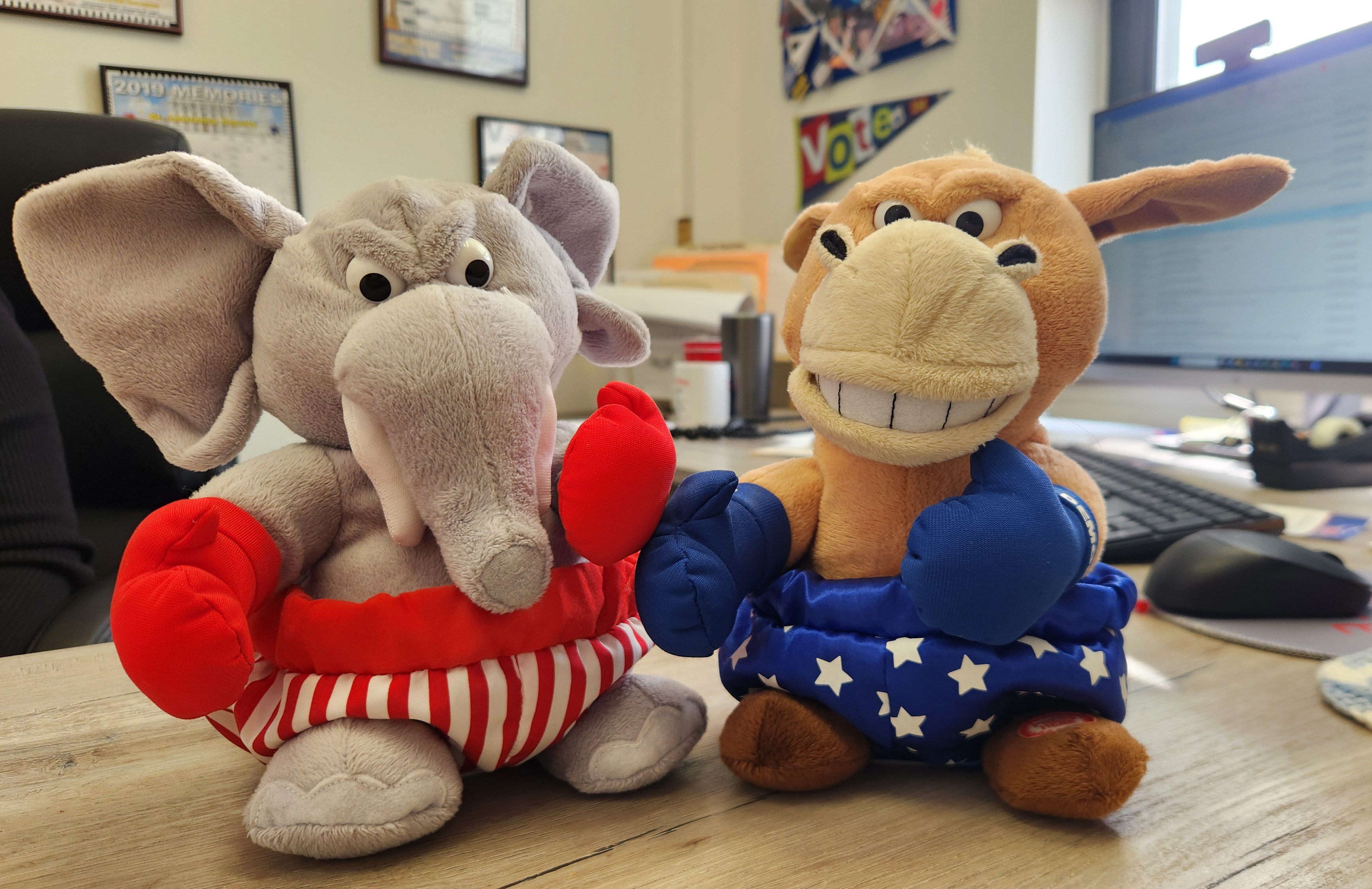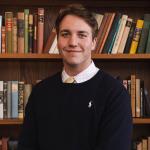Support
During my internship with North Country Public Radio I not only got to develop my writing-oriented journalism skills, but also gain abilities in an entirely new style of journalism to me — broadcast radio reporting.
This process involved learning how to use physical tools: such as microphones, portable recorders, headsets, and most importantly audio mix boards. At the start, I would often have to re-record or scrap certain stories because of my ignorance of how to properly use the equipment. While the first things I noticed were my limitations, through persistence and practice, I eventually learned to use the medium my advantage.
I found that actually hearing a source's voice did so much more to make than feel human than quotes or descriptions ever could in print. It's one thing to read what someone says, it's another to hear them. It adds to the authenticity. I also found that the ways that I held the portable recorder, or where I stood relative to the microphone in the recording studio greatly affected how my audio sounded. Once I figured out that, my audio, and myself, began to sound noticeably more professional.

But the physical tools weren't all. I also had to learn the software behind the finished products you ultimately hear on the radio. One of which being Adobe Audition, a professional audio mixing program. Audition allows the user to combine tracks, cut audio precisely, and fade and raise audio volume as it comes in and out.
Being able to cut audio tightly helped me create an audio waterfall in one of my stories. That's basically a short rapid-firing of several voices that all said something similar about one topic. I used that technique in a story I did about poll workers titled "Election officials struggle to find poll workers for upcoming elections."
After that, I had to transfer the audio to the main studio's computer so that the host could play it on air. We used a file transfer program called FileZilla to do so, which is used at many radio stations for the same purpose. Finally came posting it on the web, which involved me learning how to use the back-end of NCPR's website.

Before I got to produce anything with the tools or the software, I started out by refreshing my journalistic skills that I needed for producing a news story in the first place. I would meet with my editors, David Sommerstein and Monica Sandreczki to discuss ideas I had for stories. They would coach me to look at a story from all of its angles, what kind of questions I should ask my sources, and most importantly how to identify what kind of ambient audio I should try and record alongside. Ambient audio is a term used for background audio, like birds chirping or cars driving down a busy road, that's used to give a story more life.
These conversations came most in handy when I was working a feature story called "How Watertown's rare, non-partisan government shapes its elections." I knew that members of city council were going to be participating in a dunk tank at an event the day I was reporting there. So, we decided that getting audio of one of the politicians getting dunked could help set the scene later.
Other times they would have stories ready for me that I would have to produce in a day. This was called "day duty," which essentially put me in charge of sourcing stories and scripts to fill air time for the next day's morning and evening news programs, Northern Light and Story of the Day. I'd usually serve in this role once per week.
Some of the notable stories that I "day-turned" were "Just nine primaries being contested in North Country this June," "Hochul plans to privatize land under closed Adirondack prisons," "Canadian border agents preparing to strike," and "Volunteer fire departments worried about proposed OSHA regulations."
However, the most important skill I learned was how to find a story myself.
Sometimes, I'd spend most of the morning skimming other news outlets, or social media, or even skimming government documents trying to find news. But given the circumstances of the area, sometimes there wasn't much to report on.
That's until I had a series of conversations with Catherine Wheeler and Emily Russell, both reporters that work at NCPR. The result of those talks was that sometimes, you have to dig a little bit deeper, and pay attention to the small details. This led to my second biggest project of the summer besides Watertown, collecting political data from the North Country.
I pulled government documents, party registration information, created political data maps, double and triple checked that information I acquired after putting it into a spreadsheet, and finally interviewed a political scientist with expertise in the are. Having that information, allowed me to look at trends, and those trends will eventually turn into stories.

On my last day, I headed into the live studio to record a two-way segment with Monica Sandreczki. Here, Monica interviewed me about what I found, how I found it, and most importantly what my expert said it could mean. That ultimately turned into a webpost titled "How have North Country voters changed over the last decade?"
Learning these skills, and putting them into real-world practice has allowed me to grow immensely as an aspiring journalist. Most importantly it's helped me identify the field that I want to work in, journalism and government, especially because of how it can help impact a community by making them more informed.

